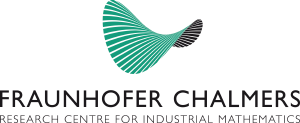Abstract
The lifetime risk of developing atrial fibrillation (AF) is estimated to be between 1 in 3 to 1 in 4 individuals, making it the most common arrhythmia in the world [5]. For persistent AF, rate control drugs with the purpose to affect the conduction properties of the atrioventricular (AV) node are the most common treatment. The drug of choice varies between β-blockers and calcium channel blockers, often chosen empirically. This can lead to long periods of time before sufficient treatment is found. However, due to the physiological differences between the drug types, it could be possible to predict the effect of the drugs and thus assist in treatment selection. The main focus of this thesis is therefore to assess drug-dependent differences in the AV node, using non-invasive measurements.
This thesis comprises an introduction to the subject as well as two papers. The first paper proposes a framework for assessing the conduction properties of the AV node non-invasively using a mathematical model of the AV node in combination with a genetic algorithm.
The second paper is a continuation of the work in paper I, where the proposed workflow was adapted to assess the drug-dependent effect on the AV node of four different rate control drugs during a period of 24 hours.
The methods presented in this thesis have made it possible to assess both the refractory period and the conduction delay in the AV node in a robust way using ECG, and by doing so found population-related differences in AV node conduction properties between drug types.
For further information and to join via
Zoom: https://lu-se.zoom.us/j/67460684937
Friday 16 December 13.00
